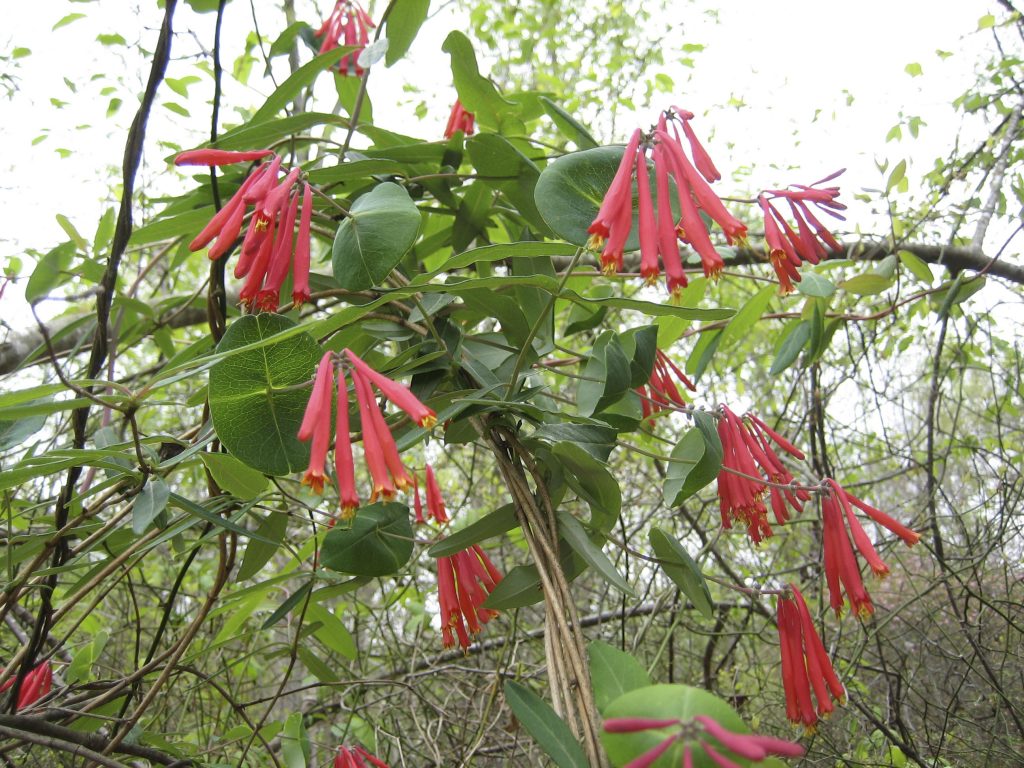
In late December, TLC launched its new Strategic Action Plan, which outlined the organization’s goal of conserving 25,000 acres by 2025. This effectively doubles the pace of conservation in our region.
We hit the ground running. By the end of December, TLC closed three projects protecting 220 acres and 8,130 stream feet in the Neuse Basin. Of the three year-end projects, TLC now owns one outright and the two others were protected in perpetuity by conservation easements. The tract TLC owns is located less than a quarter mile from Falls Lake and protects the Little Beaverdam Creek Slopes Natural Area in Wake County. This tract includes a designated NC Natural Heritage Area and several rare plants. This area is home to unique plant communities as well as a mature mesic mixed hardwood forest, several Piedmont waterfalls, and six tributaries leading to Falls Lake, the main drinking water resource for the City of Raleigh and surrounding communities.
The other two conservation easements protect several tributaries and wetlands along the Neuse River in Johnston County. A conservation easement is a legal agreement that permanently restricts uses of the land in order to protect the conservation values of a property and limit future development.
We kept that momentum going into 2019 by closing on an additional 70-acre tract along the Neuse River and Buffalo Creek in Johnston County. This is the missing puzzle piece that connects all of TLC’s conservation efforts along Buffalo Creek to the Neuse River. This property is primarily a managed loblolly pine forest, but there is a small section of longleaf pine and several riparian corridors along Stoney Branch and Barns Creek (the two main tributaries on the property) that lead to the Neuse. These riparian corridors have several nice cane breaks and a lovely mix of tulip poplar, oaks, and even some beech bluffs.
On March 6, 2019, TLC closed a conservation easement on The Spodnick Longleaf Pine Forest, which is located in the southeast corner of Wake County within the community of Willow Spring, approximately one mile southeast of Fuquay-Varina. The conservation easement encumbers one parcel of land, owned by The Spodnick Family Trust, totaling just over 17 acres. Approximately 8 acres of the property has been planted in longleaf pine (Pinus palustris) and associated warm season grasses, such as little bluestem (Schizachyrium scoparium) and wiregrass (Aristida stricta). The longleaf pine forest has been converted from an open field and is being actively managed for restoration and stand health. Southern Wake County is within the northernmost range for natural longleaf pine forests, and the Spodnick property serves as model for private landowners restoring land into productive habitat. There are approximately 1,000 feet of a small unnamed tributary that leads to Black Creek flowing through the mixed hardwood portion of the property. The stream originates on the property and the easement provides critical headwater stream protection.
TLC is thankful for the generosity of these landowners who have made donations that permanently protect wildlife habitat and local drinking water. The property by Falls Lake was also funded in part by the City of Raleigh’s Watershed Protection Program.
On all of our conservation easement projects, Triangle Land Conservancy works with landowners to develop strategies that meet their long-term conservation and land management goals while realizing potential financial benefits including tax incentives and available funding sources. When appropriate, TLC may partner with other conservation organizations, both public and private, to conserve and steward land. Our involvement may range from facilitating the protection of a property to monitoring conservation easements held by other entities. All of TLC’s work with landowners is voluntary.
Acquiring land or a conservation easement is just the first step in protecting its conservation values. Beyond is the long-term responsibility of ensuring the conservation integrity of the property. Future stewardship is considered prior to protecting a site, taking into consideration the resources that are being protected, specific management needs, as well as potential costs.
